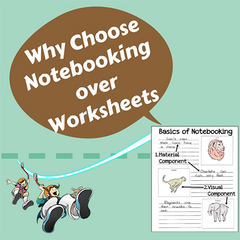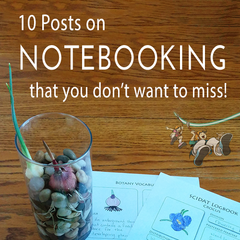We have shared literally hundreds of tips and tools over the years to help you teach science at home. And to make things easier for us all, we wanted to create a one-stop shop for our best pieces of advice for homeschool science!
Before we get to the top 50 tips, we wanted to share with you 5 free conference sessions. These were shared as part of season 2 of the Tips for Homeschool Science Show and are available in both audio and video form. Here are the links to these helpful training seminars:
- The Three Keys to Teach Science
- Inspiring your students to Love Science through Living Books
- I want to teach science, but...
- Nature Study - the natural way to learn about science
- Eliminate your fears and doubts surrounding the science fair project
Okay, let's get to the 50 tips...
50 of the Top Tips and Tools for Homeschool Science
If you are not yet convinced that you should teach science, check out our very first podcast episode:
After that, move onto tips and tools to help you create a plan for science that fits your unique homeschooling situation.
Creating your Homeschool Science Plans
Let's start with the foundations of what your homeschool science plans should include:
Once you know what you need to have for each week, here are a few posts to help you determine which plans or programs will fit your homeschool:
- 5 Questions to ask as you create your plan for science
- How to create an effective plan for homeschool science
- 5 Ways you never thought you could use to teach science
If you love the idea of classical education, here are few posts you will want to check out:
- What should science look like for the classical educator?
- What should you do if you find classical education mid-cycle?
- The Ultimate Guide to Science in Classical Education
If you love the idea of living books, here are a few posts you will want to check out:
- How to use living books with elementary students
- How to use living books with middle school students
- How to use living books with multiple ages
If you love to DIY things, here are some tips on what to cover for each subject:
- Teaching Physics at Home
- Teaching Chemistry at Home
- Teaching Earth Science at Home
- Teaching Astronomy at Home
- Teaching Biology at Home
So now that you have a better idea of what your plans should look like, let's dig into the number one issue with teaching science - experiments!
Dealing with Experiments
To answer the number one question we get, yes you do need to do hands-on science. And here is why:
But the good news is that you have options! Here are a few posts to explore about adding hands-on science to your homeschool plans:
- Scientific demonstrations vs. Experiments
- What is nature study?
- 6 Experiment Questions that Homeschoolers Need to be Answered
And here are tips to help you actually do those experiments each week:
- 5 Tips for success with experiments
- 5 Sanity-saving tips for experiments
- What to do with a failed experiment
Plus, you can look at things close-up with our microscope tips:
And don't forget about the science fair project:
Once you have a handle on the hands-on, check out the following tips and tools for gathering scientific information!
Reading about Science
Teaching science is about more than just doing experiments, you need to learn about science. Here are a few tips on where to get your information:
If you want to dig deeper into what living books are, check out these posts:
Check out this post to get ideas of resources you can use to create your own unit:
For all those techies out there, here are a few resources for gathering information digitally:
- 12 Scientific Apps we have on our smartphones
- YouTube Channels we love for science
- How we use technology to learn about science
Once you have gathered that info, you need to record it so that your students are more like to remember it.
Writing and Notebooking
Students (and parents) are far more likely to remember something if they write it down, which is why writing is also important for science. Here is a bit more information about writing in science:
Our favorite way to keep a record is through notebooking! If you haven't heard about notebooking before, these three articles will help you understand the basics:
- What is notebooking?
- Why choose notebooking over worksheets?
- 3 easy steps for getting started with notebooking
And check out these posts for more nitty-gritty information on how to record the information your students have learned in science:
- Writing in Homeschool Science: The Elementary Years
- Writing in Homeschool Science: The Middle School Years
- How to Record an Experiment
Now that you have a good understanding of the three essentials, you can add in a few extras for more interest!
Having Fun with Science Activities
Before you decided to add in more, have a listen to this episode about whether or not to add them in the first place:
Learn more about how we add in the extras once a week:
And here are several places you can go for ideas for more science activities:
Encouraging Words for "Those Days"
And for "those days" when nothing seems to be going right or you question all your decisions about science, here are a few tips to encourage you or point you in the right direction:
- What to do when you are behind in science
- 5 Tips to help you get it all done . . . if that is even possible
- Are you finding it hard to stay on track week after week?
- How to deal with perfect curriculum panic
Well, there you have it - 50 of our best tips and tools to help you teach science in your homeschool! If you still have questions, go ahead and leave them in the comments below. We'll either point you to another article to help or answer your question if there isn't a post on that topic yet!


